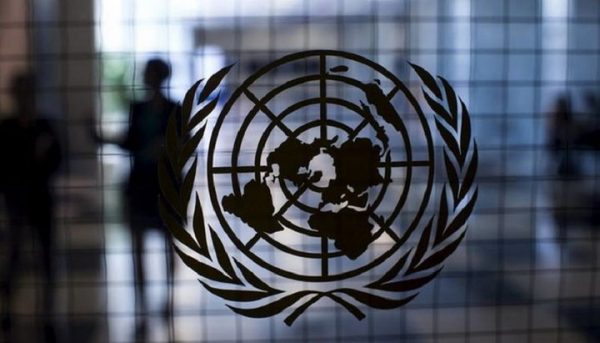The Office of the High Commissioner of Human Rights for the United Nations released two reports on March 12, 2019, including information about religious tensions and oppression in Ukraine surrounding the autocephaly process: Report on the human rights situation in Ukraine 16 November 2018 to 15 February 2019 and Civic space and fundamental freedoms ahead of the presidential, parliamentary and local elections in Ukraine in 2019-2020.
The reports acknowledge that the religious situation has been worsened in Ukraine thanks to the Patriarchate of Constantinople’s actions there and that the canonical Church has suffered at the hands of the state, the schismatics, and right-wing extremist groups.
The section on “Freedom of religion or belief” in the “Civic space” report begins: “On 29 June 2018, a church in Odesa was robbed and desecrated. The police launched a criminal investigation into the fact of robbery, while disregarding a possible additional classification as hate crime.”
The report then makes three main points, highlighting a number of human rights violations against the hierarchy, clergy, and faithful of the canonical Church, which OrthoChristian has previously reported on, including unfounded charges, unwarranted searches and seizures, the forceful renaming of the Church, and the restriction on the canonical Church’s military chaplaincy work:
- “Although tensions between Orthodox communities in Ukraine existed prior to the armed conflict in eastern Ukraine, they have been significantly exacerbated by the ongoing autocephaly process. Throughout the reporting period, OHCHR documented 10 incidents of threats and acts of intimidation against clergy and parishioners mainly affecting the Ukrainian Orthodox Church (of the Moscow Patriarchate). OHCHR is concerned that the current political environment further contributes to tensions negatively impacting the freedom of religion or belief, with possible negative consequences for other human rights, including the right to freedom of opinion and expression, ahead of elections.
- “In November 2018, following the refusal of the Ukrainian Orthodox Church to join the newly established Orthodox Church in Ukraine, the Security Service of Ukraine (SBU) launched a series of criminal investigations into allegations of incitement to religious hatred, with the additional charge of high treason in at least one case, without issuing notices of suspicion. In the context of these investigations, SBU searched the property of the Ukrainian Orthodox Church and the homes of the clergy hierarchy. SBU also interrogated clergymen in different regions of Ukraine. Individuals interviewed by OHCHR, reported that such actions put them under pressure and said that despite the absence of direct threats or coercion, they considered these as attempts to influence their position on autocephaly.
- “On 20 December 2018, the Parliament voted to begin the mandatory renaming of the religious organizations affiliated with religious centres in the Russian Federation, primarily targeting the communities of the Ukrainian Orthodox Church. The Parliament also adopted restrictions on the access of clergymen of such organizations to the premises of the Armed Forces of Ukraine on the basis of national security considerations. This contravenes article 18(3) of the International Covenant on Civil and Political Rights as national security is not a permissible ground for a restriction of freedom of religion or belief.”
In the “Report on the human rights situation,” the Human Rights Commissioner’s Office also notes that it documented cases of intimidation against members of the canonical Church at the time of the “unification council” on December 15 and that it has documented several cases of false and forceful parish transfers to the schismatic church.
The UN therefore recommends that the Ukrainian government publicly condemn and investigate all violent attacks and to uphold Ukraine’s international human rights obligations, including the freedom of religion. It also calls upon the international community to further call upon Ukraine to respect human rights.
The clergy and faithful of the Memorial Church of St. Seraphim of Sarov in Sea Cliff, New York earlier appealed to international human rights organizations with a request to investigate the numerous human rights violations that occur daily in Ukraine.
In mid-February, Ukrainian authorities confiscated the passport and canceled the citizenship of His Grace Bishop Gideon of Makarov who was returning from America, where he had spoken to Congress and the State Department about the violence and human rights violation in Ukraine.

















